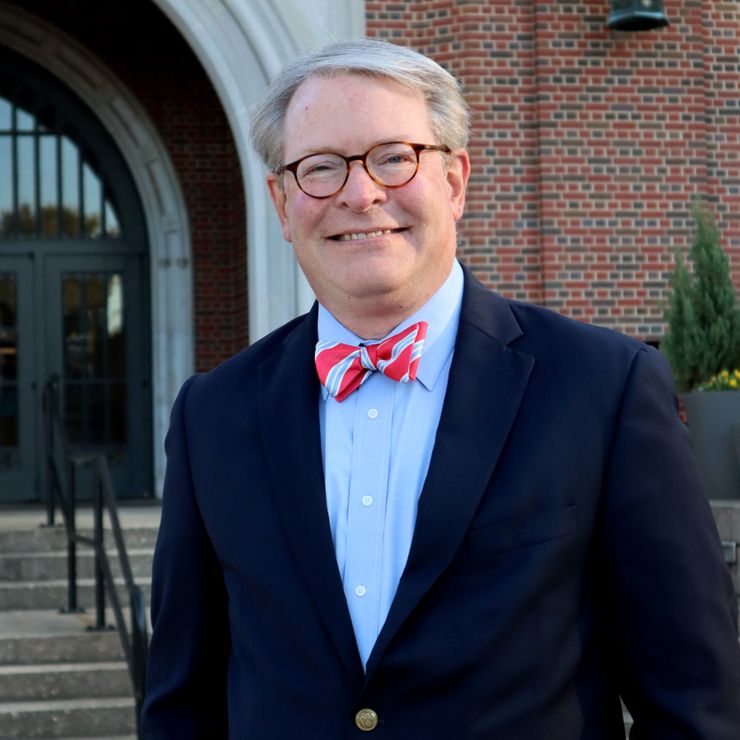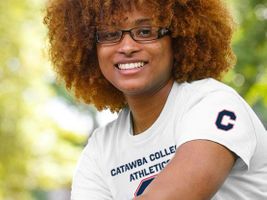Faculty & Staff Story
Dr. Michael Bitzer

Dr. Michael Bitzer
Preparing Students for their Future
Hometown: Clemson, SC
Where You Currently Reside: Salisbury, NC
Year of Hire: 2002
HOBBIES & INTERESTS:
I’m an amateur photographer with interests in landscapes (especially barns and waterfalls in the North Carolina mountains and upstate of South Carolina), athletic events (especially of my son’s teams), and really anything else outdoors that captures my eye. I’m very much a college sports fan, with loyalties (of course) to my two alma maters, Clemson University and the University of Georgia, and by extension Wake Forest (thanks to fandom by marriage). I’m also an avid book and black tea collector, as my campus office can attest.
FAVORITE PLACES:
Anywhere in the mountains of North Carolina, in the mountains west of the United States (especially in the Grand Teton National Park), and thanks to the ability to travel with a Catawba honors course, Germany and Poland (especially during the December holiday market season).
When talking about his students:
I always tell them, ‘We can easily prepare you for your first professional experience—that’s not a problem. What we hope to do, by training you to communicate effectively, think critically, and solve problems, is prepare you for the job that you’ll retire from—and who knows what that will be.’”
Dr. Michael Bitzer is a professor of both Politics and History and the Politics Department Chair here at Catawba. He is the author of the book Redistricting and Gerrymandering in North Carolina: Battlelines in the Tar Heel State.
“I teach a wide-variety of courses, primarily in American politics, but also dabble in history, especially with the honors course “States of Killing: Genocide in the 20th Century.” Most of the time, you’ll find me teaching on American government and politics, from the three branches of the national government to State Politics, Local Politics, Southern Politics, US Campaigns and Elections, Polarization in US Politics, and a series of constitutional law classes,” said Michael.
He added, “I’ve also developed a strong research interest in various aspects of American politics, primarily on the politics of North Carolina, which I think is a great case study and microcosm of so many dynamics that we find in American politics. I’ve had the opportunity to write a book on North Carolina redistricting, along with several book chapters on the state’s politics for college-level texts, and present research on various aspects, including North Carolina elections and voter behavior. As a result, I’ve been quoted in a lot of regional, national, and even international media outlets to help the broader public understand the dynamics of North Carolina and American politics, something I think of as ‘public education and scholarship’ whenever I talk to a reporter.”
Michael chose Catawba because it reminded him of his alma mater. “Thanks to the experience I had at my undergraduate alma mater (about the half the size of Catawba), I knew when I started my graduate studies I wanted to be in a similar-style institution that valued teaching with the ability to get to know my students, challenge them, and watch their intellectual and academic development over their collegiate careers,” he said.
When asked what he likes about Catawba, he said, “I think one of the great things about Catawba is that I view the classroom as a two-way street: yes, I know something about the topic at hand, but I also want to hear what my politics and administration of justice majors are thinking about a particular topic or issue in the class. I intentionally structure my classes to where students write up a short summary of the readings for that day’s class, mention what is new information to them from the material, but more importantly, what are some questions they have coming out of the readings that they would like to learn more about.”
He added, “This helps me tailor each class to topics that the students are interested in and curious about learning more, and oftentimes (well, pretty much all the time) we are always behind the ‘schedule’ due to such great questions and issues that the students want to learn more about. I think this is something that really helps achieve the idea of “an education rich in personal attention” that Catawba prides itself upon delivering. And yes, it can be challenge and daunting in many of my classes—I often get students saying, “my brain hurts” at the end of class, but that says to me that they have been thinking deeply, and understanding, the topic at hand.”
“What I’m most excited about is to see what our graduates do after leaving Catawba. Our majors all share a common aspect of wanting to provide public service in their vocations, and I think we are successful—whether it’s getting pre-law majors into law school, sending students off to work on their master’s in public administration in top 3 national programs, or going straight into their professional careers with rewarding jobs—it’s something that our small program prides itself on serving our students.”
